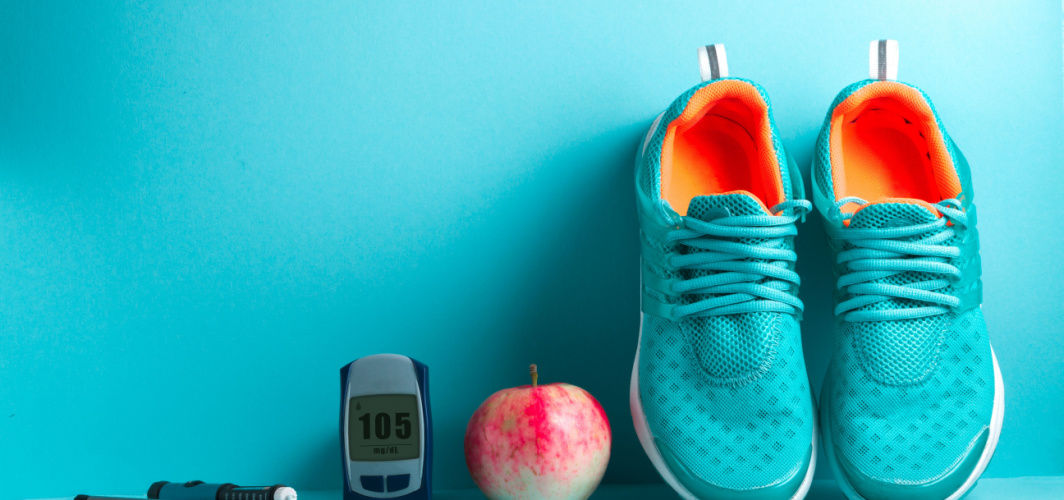Diabetes Management
Mastering Diabetes Management During Social Gatherings and Festivities
2 min read
By Apollo 24|7, Published on - 27 March 2024
Share this article
0
0 like
.jpg?tr=q-80)
Managing diabetes can be challenging, especially during social gatherings, holiday festivities, and special occasions during which eating delicious food and inactivity are common. However, you can keep your blood sugar in check and enjoy such events with the right strategies. Here are some strategies that can help you navigate diabetes effectively during these situations.
Maintaining Consistent Meal Timings
Consistency is key to managing diabetes. Eating balanced meals and snacks at regular intervals throughout the day helps keep blood sugar levels stable. When attending social functions or family gatherings, stick to your usual meal timings as much as possible.
Balancing Your Plate
Use the diabetes plate method to ensure a balanced diet. This method involves filling half your plate with non-starchy vegetables, a quarter with lean protein such as beans, tofu, fish, or chicken, and the final quarter with complex carbohydrates like brown rice or whole-grain bread. This balance helps maintain your glucose levels and also leaves you feeling satisfied.
Staying Active
Physical activity is another crucial aspect of diabetes management. Simple activities like walking around the party venue or dancing can help control your blood sugar levels. Try incorporating some form of physical activity into your schedule, even during festive seasons.
Enjoying in Moderation
Remember, it's okay to enjoy holiday foods and beverages, but moderation is key. Be mindful of portion sizes and make wise choices about what you consume. Monitoring your blood sugar levels frequently is crucial during these times to ensure they remain stable.
Staying Hydrated
Dehydration can affect blood sugar levels, so staying hydrated is important. Water is always the best choice, especially before attending social events.
Educating Family and Friends
Ensure that your loved ones know what to do in case of a diabetic emergency. You can also bring snacks with you in case of emergencies or when meal service is delayed.
In conclusion, managing diabetes during social situations and holidays is achievable with a balanced approach to nutrition, physical activity, and regular blood sugar monitoring.
Diabetes Management
Consult Top Diabetologists
View AllLeave Comment
Recommended for you

Diabetes Management
Is There Some Standard Care for Diabetes?
Managing diabetes requires a multifaceted approach, including lifestyle changes, medication adherence, regular monitoring, and personalized care plans. A balanced diet, physical activity, and education are foundational. Medications, blood glucose monitoring, and addressing factors like blood pressure are vital. Regular check-ups, self-care, and emotional well-being contribute. Personalization is key, with ongoing research integrating new technologies and strategies.

Diabetes Management
Are You at Risk for Diabetes? This Simple Test Can Tell
The HbA1c test, also known as the haemoglobin A1c test, is a blood test that measures the average blood glucose levels over the past two to three months. It is used to diagnose and monitor prediabetes and diabetes.The test does not require fasting or any other special preparation. It is important to interpret the results in consultation with a healthcare professional.
.jpg?tr=q-80)
Diabetes Management
Creating Diabetes-friendly Salads: A Recipe Guide
Creating diabetes-friendly salads can be simple and delicious. Opt for nutrient-dense greens, colorfulcolourful non-starchy vegetables, low-glycemic fruits, high-protein toppings, and healthy fats. Enjoy a variety of flavorsflavours with our diabetes-friendly salad recipes. To manage diabetes more effectively, consider joining the Apollo Super 6 program for personalized support.
Subscribe
Sign up for our free Health Library Daily Newsletter
Get doctor-approved health tips, news, and more.
Visual Stories

8 Fruits That are Incredibly Healthy for Diabetes
Tap to continue exploring
Recommended for you

Diabetes Management
Is There Some Standard Care for Diabetes?
Managing diabetes requires a multifaceted approach, including lifestyle changes, medication adherence, regular monitoring, and personalized care plans. A balanced diet, physical activity, and education are foundational. Medications, blood glucose monitoring, and addressing factors like blood pressure are vital. Regular check-ups, self-care, and emotional well-being contribute. Personalization is key, with ongoing research integrating new technologies and strategies.

Diabetes Management
Are You at Risk for Diabetes? This Simple Test Can Tell
The HbA1c test, also known as the haemoglobin A1c test, is a blood test that measures the average blood glucose levels over the past two to three months. It is used to diagnose and monitor prediabetes and diabetes.The test does not require fasting or any other special preparation. It is important to interpret the results in consultation with a healthcare professional.
.jpg?tr=q-80)
Diabetes Management
Creating Diabetes-friendly Salads: A Recipe Guide
Creating diabetes-friendly salads can be simple and delicious. Opt for nutrient-dense greens, colorfulcolourful non-starchy vegetables, low-glycemic fruits, high-protein toppings, and healthy fats. Enjoy a variety of flavorsflavours with our diabetes-friendly salad recipes. To manage diabetes more effectively, consider joining the Apollo Super 6 program for personalized support.
